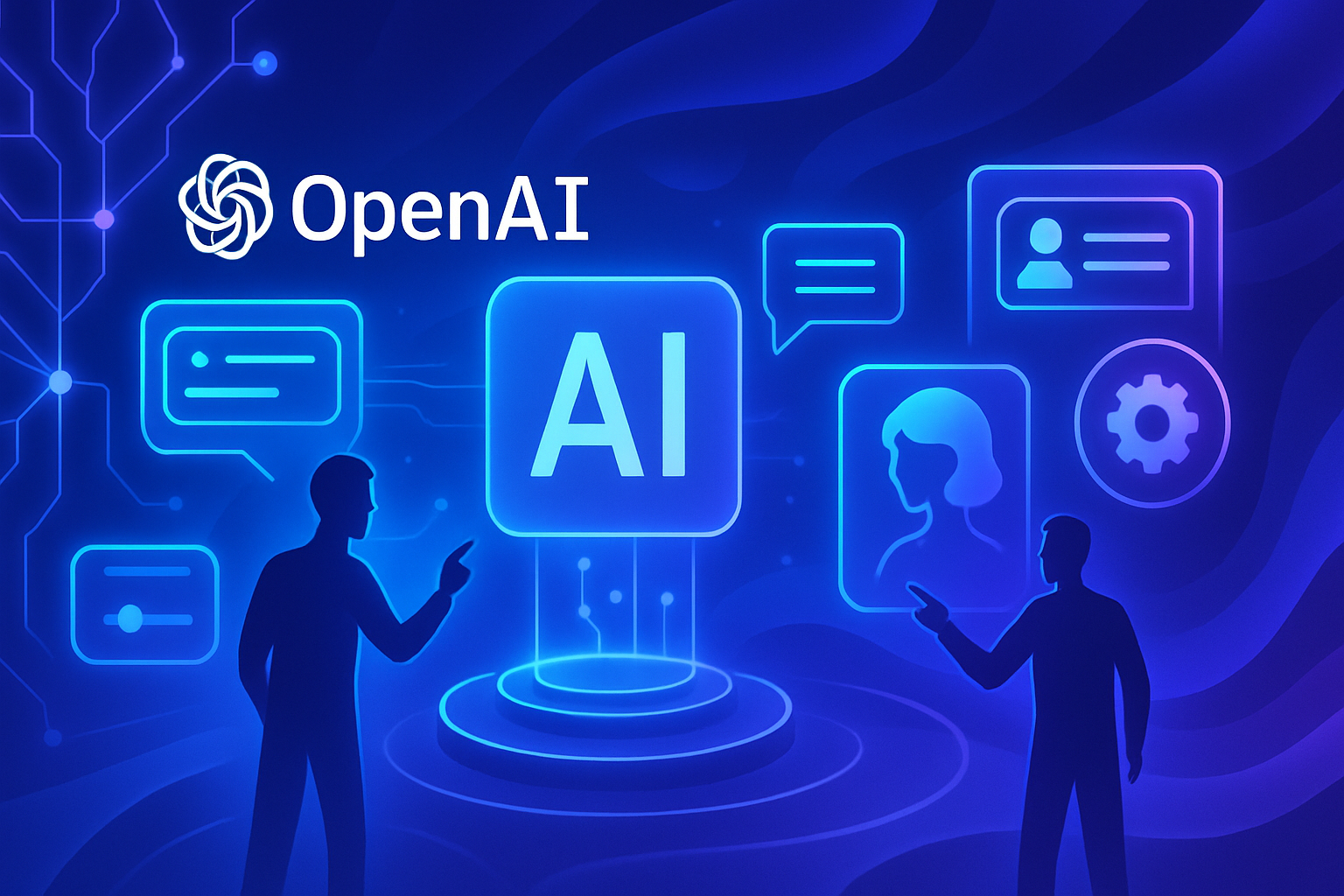OpenAI asserts itself with a strategic acquisition that propels personalized AI to the heart of consumer expectations. The initiative is part of a very targeted ambition to transform their digital experience through innovative solutions. *The integration of new technologies* revolutionizes the way users interact with their applications.
This acquisition demonstrates an unprecedented commitment to making AI *a true companion* in personal financial management. The concern for personalization becomes *a priority* in a rapidly evolving sector, thus laying the foundations for a new digital era.
OpenAI strengthens its personalized AI strategy
OpenAI recently acquired Roi, a personal finance application powered by AI, illustrating its growing commitment to personalizing user experiences. This move is part of a broader trend in the artificial intelligence sector, focused on adapting to the specific needs of consumers.
Details of the acquisition
The CEO and co-founder of Roi, Sujith Vishwajith, officially announced the acquisition. A source revealed to TechCrunch that only Vishwajith, out of the four Roi employees, will join OpenAI with financial details undisclosed. All operations of Roi will cease on October 15, marking the end of a project launched in 2022 after raising $3.6 million from notable investors.
Technology and ambitions of Roi
Roi aimed to aggregate users’ financial wealth, integrating stocks, cryptocurrencies, DeFi, real estate, and NFTs into a single application. This platform aimed to track funds while providing valuable insights, helping users make informed decisions. Roi’s vision is based on the essential factor of personalization in finance, demonstrating that this approach can have broader implications.
Personalization and interactivity
The application allowed users to interact with a knowledgeable virtual companion. For example, when using the platform, users could specify their communication preferences. In an illustrative example, a user requested an interaction tailored to a “young member of Generation Z,” highlighting the importance of a personalized approach in interactions.
The response provided by Roi was both engaging and relevant, proving that developing an AI capable of adapting to a user’s language and behavior is a major challenge. Roi’s talent and technology could enrich OpenAI’s current applications.
Alignment with OpenAI’s vision
This acquisition underscores OpenAI’s intent to focus on personalization and life management as a new layer of artificial intelligence products. Roi’s technology, along with its specialized team, could be integrated into existing initiatives like Pulse, Sora, or Instant Checkout, all dedicated to optimizing user experience through AI.
Team and experience of Roi
Vishwajith, alongside his co-founder Chip Davis, previously worked at Airbnb, refining their understanding of user behavior optimization. A simple modification of 25 lines of code generated over $10 million in additional revenue, demonstrating their ability to leverage data to enhance engagement and profitability.
Financial perspective for OpenAI
The need for OpenAI to generate revenue through its consumer applications is more pressing than ever, given the billions in costs incurred for operating its infrastructures. This acquisition of Roi thus fits into a strategy aimed at strengthening its market position while responding to the evolving technological landscape.
Challenges and future predictions
With this acquisition, OpenAI seems to be establishing a transformation trajectory towards a sustainable AI model that not only meets individual needs but also adapts and learns continuously. Roi’s technologies could potentially serve as a foundation for developing applications that anticipate user expectations in a constantly evolving digital world.
For more information on other initiatives in the field of artificial intelligence, explore thoughts on giving AI a personality here or examine the current issues of Google’s dominance here.
Frequently Asked Questions
What is the objective of OpenAI’s acquisition of Roi?
The acquisition of Roi aims to strengthen OpenAI’s ability to offer personalized AI and life management products, drawing on Roi’s expertise in personal finance.
What benefits can OpenAI users expect from this acquisition?
Users can expect more adaptive and personalized applications that better understand their needs and behaviors, particularly in finance.
Will Roi’s technology be integrated into OpenAI products?
It is still uncertain whether Roi’s technology will be transferred, but the acquisition aims to leverage the lessons learned by Roi’s team on personalization.
When will Roi’s operations be completely halted?
Roi will cease its operations and discontinue service to customers on October 15.
What is the team’s background in personalization at Roi?
The Roi team has a proven track record in creating personalized financial experiences, having previously attempted to address the challenges of large-scale personalization.
How does the acquisition of Roi fit into OpenAI’s overall strategy?
This acquisition is part of OpenAI’s strategy to focus on consumer applications and aims to transform user engagement by offering highly personalized experiences.
What other projects has OpenAI recently launched?
OpenAI has recently launched initiatives like Pulse, Sora, and Instant Checkout, all aimed at enhancing user experience through personalized solutions.
Who is Sujith Vishwajith, and what role will he play at OpenAI?
Sujith Vishwajith, the CEO and co-founder of Roi, is the only member of the Roi team joining OpenAI, and he is expected to play a key role in the development of personalized products.
What financial implications could the acquisition have for OpenAI?
Given the significant infrastructure costs, the acquisition aims to generate substantial revenue through consumer applications, which has become crucial for OpenAI.






